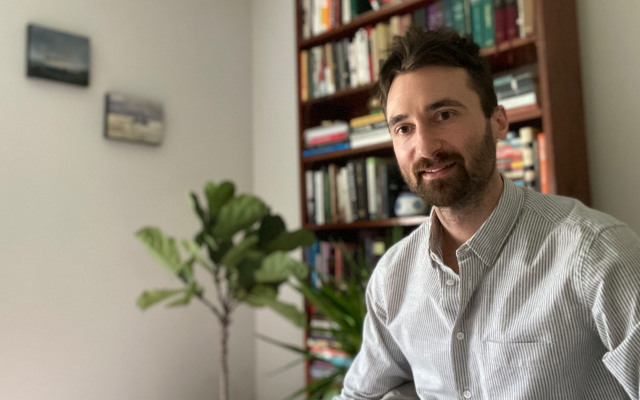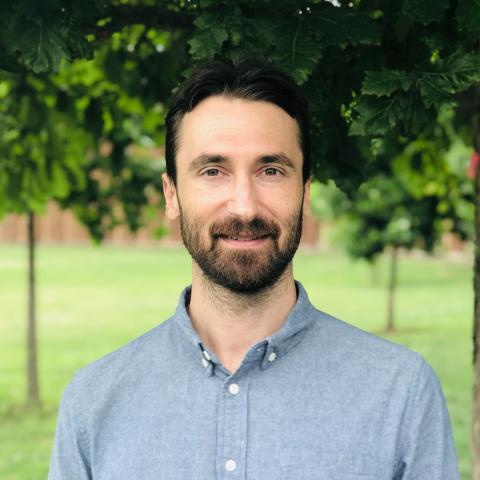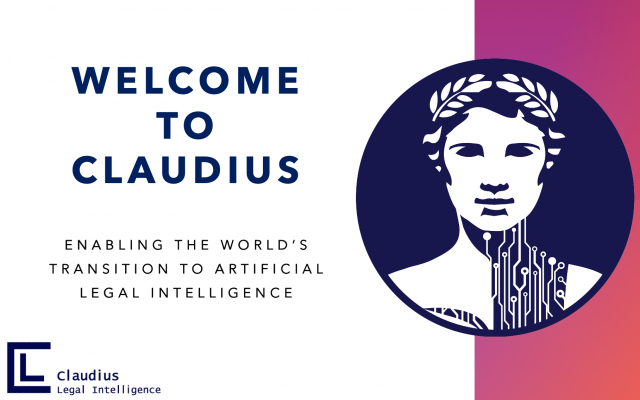
Keller Center: What inspired you to tackle challenges in efficiency and decision making in the legal system?
Joseph Avery: I’m a lawyer, and thus I was trained to love the legal system. But I don’t love everything about it! When I practiced, and now in my academic research, I’ve seen tremendous inequality in the system, and this inequality is a byproduct of both our overburdened system and deficient human decision making—two things that aren’t independent, either. In my dissertation research, I explore these problems directly, and it was this research that set the foundation for building the technology that powers Claudius, our “artificial intelligence co-counsel.”
KC: Lawyers and the legal system in general are not known for technology innovations, how do you see that ecosystem adapting to an AI platform?
JA: It's true that the legal profession has lagged behind others, such as finance and medicine, in adopting technology. But I don’t think law firms are solely to blame. On one side, firms do have challenges both structurally and culturally that keep them from innovating and from wanting to optimize and be efficient. On the other side, I don’t think the tech products currently offered have shown genuine value. With Claudius, which shows significant value and will increase firms' profits, this is changing. Thus, I think the path forward is clear: there will be some firms that will partner with companies like ours, and suddenly they will be outcompeting their peer firms. Once Claudius is installed as AI co-counsel at prominent firms, I think we’re going to see a multitude of other firms suddenly racing to adapt and adopt.
KC: How will the eLab Accelerator program help advance your startup?
JA: The eLab is a tremendous opportunity, and we were all just thrilled to be accepted. I met the Keller Center's Executive Director, Cornelia Huellstrunk, about a year ago, and I was so impressed by her efforts to marshal entrepreneurship in order to create visible and measurable societal impact. From that initial conversation, I knew that Claudius would benefit from any relationship it could have with the Keller Center. As far as the eLab in particular, we will be assigned a faculty and an industry mentor, and we will receive formal training, including a three-day boot camp. And we will have 10 weeks dedicated to building out our products and beginning the process of scaling up--in short, we envision the eLab as a launching pad to where we want Claudius to go.
KC: What are your short and long term goals with Claudius Legal Intelligence?
JA: Claudius's short term goals are to become an essential part of legal practice--it should not make sense to practice law without Claudius. Personal injury alone accounts for $35 billion in annual revenue, and there are almost 100,000 personal injury attorneys practicing in the United States. This is the place to start. From here, we hope to expand into all low-level high-volume civil suits; and from there, we hope to expand into additional sectors of the law. Our ultimate goal is quite grand--accelerating the world's transition to AI law--but I'll leave that for a future discussion.
KC: What entrepreneurs inspire you and why?
JA: There have been so many notable players in the startup space, especially in recent years! But I’ve always loved reading about historical entrepreneurs who came from nothing or overcame significant barriers: Madam C. J. Walker, who was a hugely successful businessperson in the late 1800s and early 1900s, and Andrew Carnegie, who grew up with relatively scant resources, built a successful company, and then gave away virtually his entire fortune, both come to mind. Also, I have to mention perhaps the oldest legal innovator, Claudius, who was a Roman emperor from AD 41 to 54. Prior to Claudius's reign, if you sued someone or were sued by someone, you had to argue the case yourself. Claudius made it okay for claimants and defendants to hire skilled orators to argue their cases for them--in essence, creating the legal profession. It's no accident that our AI is named Claudius. Emperor Claudius created the legal profession, and our Claudius is recreating it.

